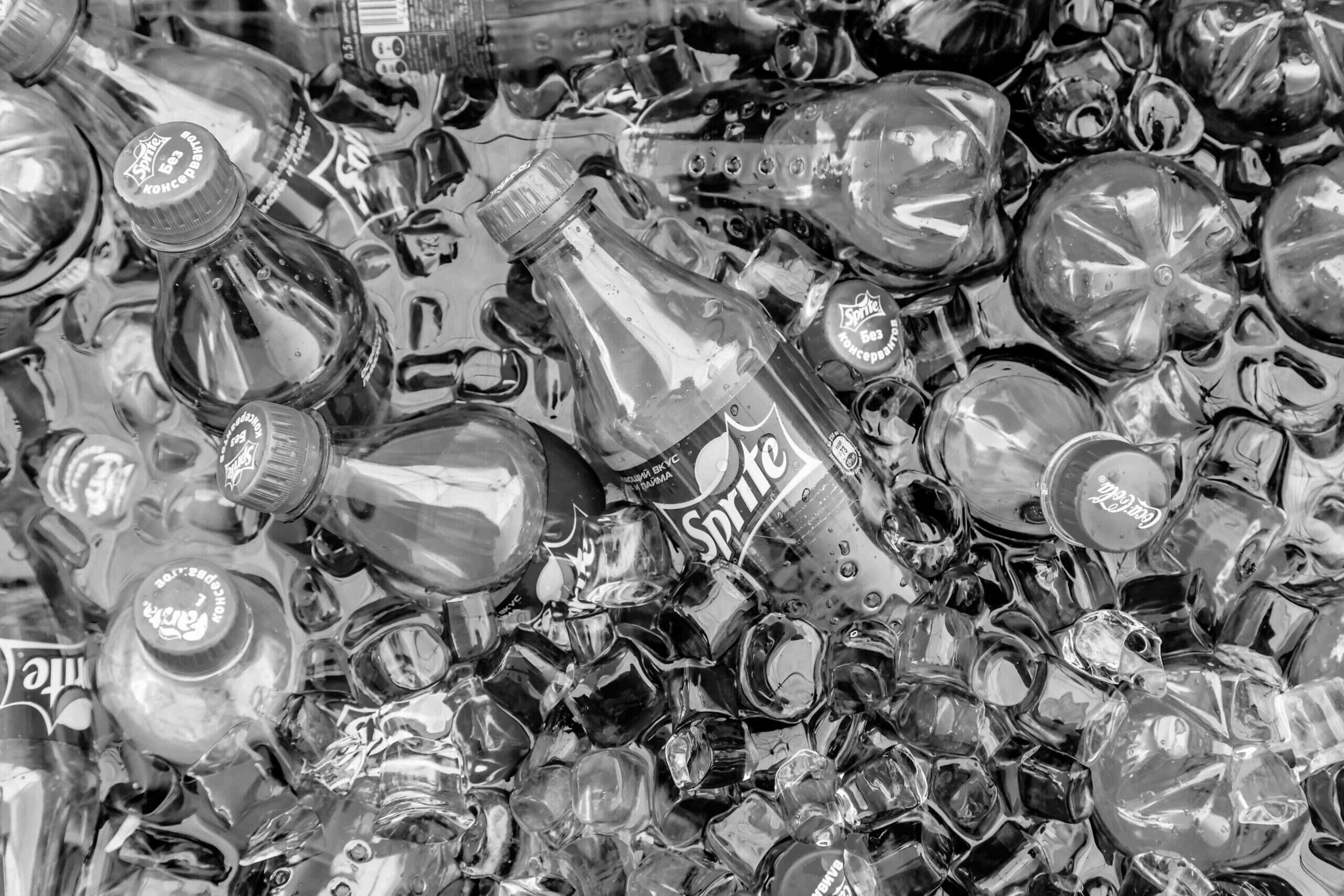

- Plastic usage surpasses GDP and population growth, with a 5,000% increase in plastic intensity of GDP since 1960.
- A UN Plastic Pollution Treaty appears within reach after recent negotiations, with the next meeting scheduled for November in Nairobi.
- Corporate negligence towards plastics risks huge financial liabilities and litigation costs.
“Plastic pollution is a time bomb,” said French President Emmanuel Macron at the UN-sponsored summit in Paris at the very end of May that had been convened to talk about the plastic problem.
Representatives from 175 nations were aiming to develop an agreement that would cover the entire plastics lifecycle.
The scale of the issue should not be underestimated. As Credit Suisse’s Center for Sustainability recently pointed out, plastic usage has outstripped both GDP and population growth over the past 60 years.
The plastic intensity of GDP – how much plastic is used for each unit of economic activity – soared by almost 5,000% between 1960 and 2020, while real GDP grew more modestly by 650% and the world’s population rose only 160%.
The bank’s in-house think tank estimates that under the baseline scenario that extends current trends and does not assume additional policy action, global annual plastic waste will almost double from approximately 350m metric tonnes to about 670m metric tonnes by 2060.
After five days of negotiation, a UN Plastic Pollution Treaty seemed within reach. “The world is one step closer to the unmissable opportunity of a global treaty to end the plastic pollution crisis,” said Marco Lambertini, special envoy for Swiss-based international non-governmental organisation WWF International.
The next meeting is to take place in November in Nairobi, Kenya, and the plan is to sign a definitive treaty by the end of next year.
Sustainability has a price
Even though consumers clearly prefer to buy environmentally responsible products, the finger of blame is generally immediately pointed at consumer packaging.
“Consumer goods packaging waste is a significant blocker to progress,” admits Thijs Geijer, senior sector economist at ING, commenting ahead of the publication of a new research note earlier this month.
The bank estimates that the total packaging volume for consumer goods in both the US and Europe will continue to grow at 1.5% a year until 2025. It will make up almost a third (30.2%) of overall packaging waste by 2040, up from less than a quarter (22.7%) in 2018.
Everyone knows what the answer is, but as the report points out “sustainability has a price”.
Changes to packaging can meaningfully reduce the environmental impact for drinks companies. Polyethylene terephthalate (PET) and returnable glass beer bottles have a carbon footprint per litre which is around three times lower than an aluminium can and five times lower than a single-use glass bottle.
While the costs of used beverage cans in Europe are 80% lower than those of new aluminium – which provides a great incentive to use recycled material to produce new cans – the problem is that it would have cost a European beverage manufacturer around 20% more last year only to use recycled PET for its bottles, the report says.
“We continue to be concerned by the elevated costs of sustainable packaging,” says Geijer, but he remains “cautiously optimistic” about the opportunities for stronger regulation and cross-industry initiatives to reduce the environmental impact of packaging.
Plastic head in the sand
But while significant, consumer packaging is a convenient scapegoat. It just isn’t seen as a serious concern for the broader industry.
This is a mistake. Not only does the equity risk premia of the 150 largest corporates within the plastic value chain perceive the risk perception in the industry as low – in fact, it is at its lowest level since 2011, London-based non-profit financial think tank Planet Tracker warns that corporate liabilities and litigation costs in plastics-related issues could hit $20bn by the end of the decade in the US alone, and could reach as much as $100bn.
“By ignoring tightening regulation, rising litigation exposure and reputational risks, the investment environment appears at odds with reality,” says Thalia Bofiliou, senior investment analyst at Planet Tracker.
This is surprising given the backdrop of tightening regulation, rising litigation exposure and “the possibility of a UN Plastic Pollution Treaty on the horizon”, the report says.
Over the last decade, 731 plastic pollution policies have been introduced around the world, with more significant regulatory burdens extremely likely to follow for high plastic polluters.
As awareness of plastic pollution increases, the report predicts association with producers will also turn into a reputational liability.
Earlier this year, Capital Monitor pointed out that banks have become increasingly aware of the need to engage more fully with the consequences of their funding. This is not necessarily because they have realised the danger posed by climate change, but rather that they have noticed that it could hit them in their pockets.
The report points out that as public awareness of plastic pollution grows, “an association with those polluters could turn into a liability, as with the coal and tobacco sectors”.
Ignoring plastics is not an option. Countries like the UK have already begun to levy a charge on virgin plastics. Barclays has suggested this could cut margins at British soft drinks manufacturers by 5%. Should the UN Plastic Pollution Treaty become definitive – and there is nothing to think that it might not – costs will rise, and a wave of legislation will hit the sector.
Better to tackle the problem now.
[Read more: Household brands accused of greenwashing]





